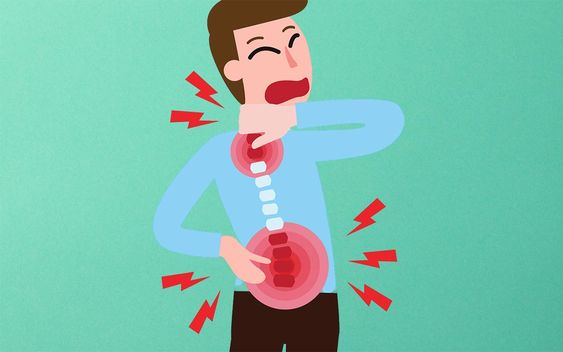Introduction:
Chronic pain, defined as persistent pain lasting for three months or longer, affects millions worldwide. This debilitating condition can significantly impact an individual's quality of life, interfering with daily activities, work, and mental well-being. Understanding the multidimensional nature of chronic pain is crucial for effective management. Unlike acute pain, which serves as a warning signal for injury, chronic pain persists beyond tissue healing, often evolving into a complex condition involving both physical and psychological factors.

This intricate interplay necessitates a multidisciplinary approach to chronic pain management, moving beyond simply addressing the physical sensation of pain. While pain relief remains a primary goal, effective management strategies encompass a holistic perspective, aiming to improve functionality, enhance coping mechanisms, and ultimately restore a sense of control and well-being for individuals living with chronic pain.
Holistic Chronic Pain Management Strategies:
Managing chronic pain often requires a multifaceted approach tailored to the individual's needs. Here are some strategies that can be incorporated into a comprehensive pain management plan:
1. Medical Interventions:
- Medications: Pain relievers, antidepressants, and anticonvulsants can play a role in pain management.
- Physical Therapy: Targeted exercises and therapies can help improve strength, flexibility, and range of motion.
- Injections: In some cases, corticosteroid injections or nerve blocks can provide temporary pain relief.
2. Lifestyle Modifications:
- Physical Activity: Engaging in regular, low-impact exercises like walking, swimming, or yoga can be beneficial.
- Diet and Nutrition: A balanced diet rich in fruits, vegetables, and anti-inflammatory foods can contribute to overall well-being.
- Sleep Hygiene: Prioritizing quality sleep is essential as poor sleep can exacerbate pain perception.
3. Mind-Body Therapies:
- Cognitive Behavioral Therapy (CBT): CBT can help individuals identify and change negative thought patterns associated with pain.
- Mindfulness and Meditation: Practices like mindfulness and meditation can assist in managing stress and improving pain acceptance.
- Yoga and Tai Chi: These practices combine gentle movement, deep breathing, and meditation to promote relaxation and reduce pain.
Conclusion:
Chronic pain management is an ongoing journey that requires a personalized and adaptable approach. It's essential to work closely with healthcare professionals to develop a comprehensive plan that addresses your specific needs and goals. Remember that effective pain management extends beyond simply reducing pain intensity; it's about empowering you to live a fuller, more functional life.

.jpg)